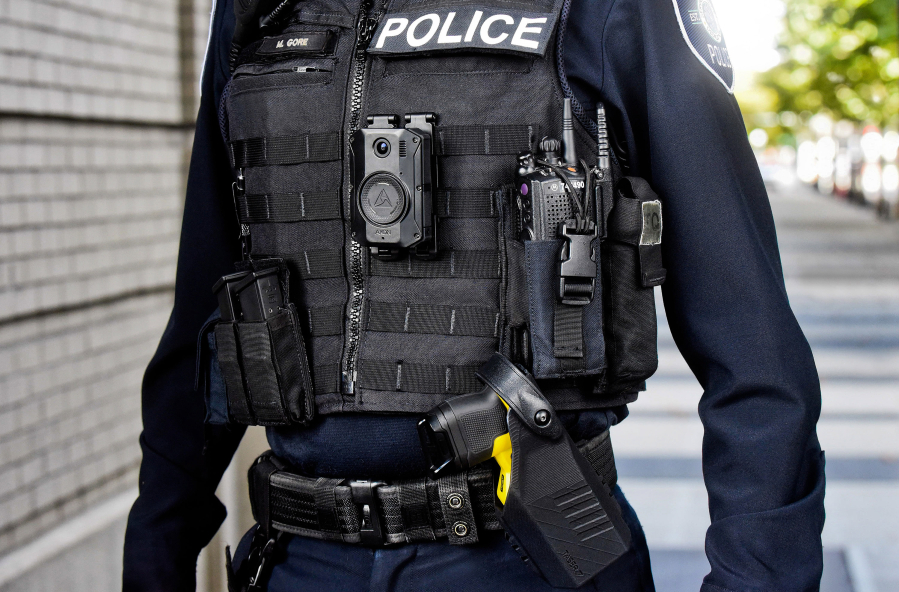The Camas Police Department is getting body-worn cameras.
And while the officers will initially use the cameras to fulfill a new state law requiring audio and visual recordings of all juvenile and some adult interrogations beginning Jan. 1, 2022, Camas Police Chief Mitch Lackey said the local police department also has discussed wearing the cameras full-time.
“Our Clark County prosecutor … has encouraged all law enforcement agencies to embrace body-worn cameras for police officers to provide a higher level of transparency and increase trust in law enforcement and criminal justice,” Lackey told Camas City Council members in October. “Although Camas police need a body-worn camera platform immediately for the purposes of achieving compliance with the new (state police) reform law, it makes sense to purchase the right device that will allow for a complete body-worn camera program, once that is implemented at a later date.”
Lackey said the city will still need to negotiate a full-time body-worn camera program with its police union and go through “several procedural steps,” but that officers will be ready to comply with the state’s new interrogation-recording law once the city receives its new AXON body-worn cameras.
The city council approved a five-year, $311,168 contract with AXON at its Oct. 18 meeting.
The contract will outfit every Camas police officer with an AXON body-worn camera, redaction software for public records requests and data-storage services, Lackey said.
The new body-worn cameras also come with tasers — electroshock weapons used to temporarily impair a person — that will trigger the camera when deployed.




